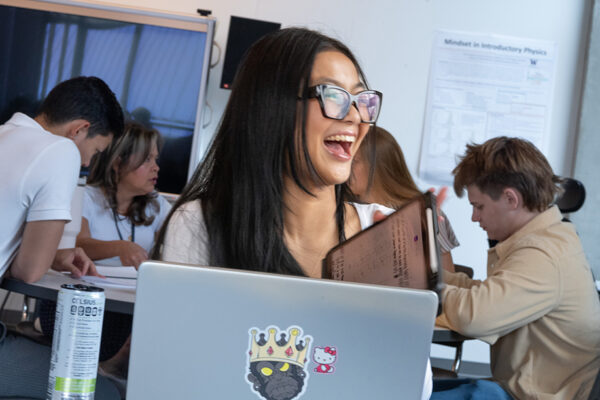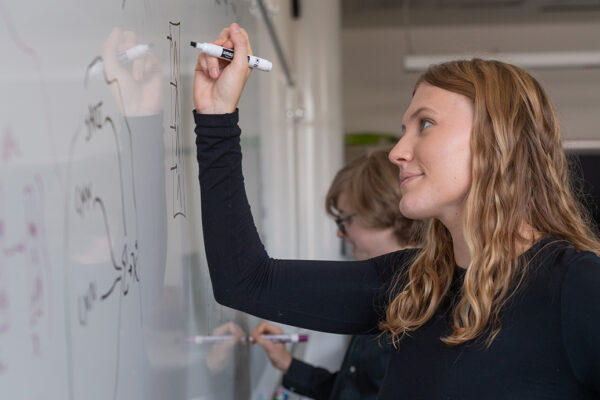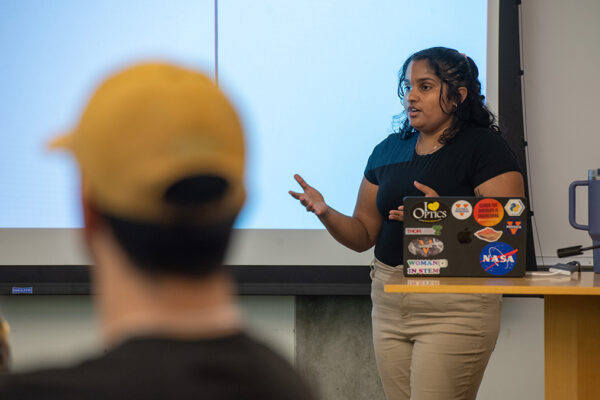Research Experiences for Undergraduates
The University of Washington Bothell is dedicated to fostering excellence and diversity in undergraduate research. Our REU programs offer students access to opportunities to collaborate with leading faculty, tackle real-world research problems and prepare for impactful careers and advanced studies.
Why choose UW Bothell for your REU?
- Dedicated faculty mentors: Learn from experts who are passionate about guiding students.
- Hands-on research experience: Engage in projects designed to make meaningful contributions to your field.
- Professional development: Build skills in communication, ethics and career preparation.
- Community and support: Connect with peers, mentors and a vibrant academic community.
- Beautiful Pacific Northwest setting: Enjoy Seattle attractions, Cascade Mountain hikes and more!
Explore our programs

Mathematics
The Mathematics Research Experience for Undergraduates program provides a unique opportunity for undergraduate students to work on impactful research projects alongside dedicated faculty mentors, engage in professional development workshops, build lasting connections with peers and present their research results. With a focus on fostering diversity and inclusion, the program combines rigorous academics with a fun, supportive environment to inspire the next generation of mathematicians.
Learn more
Physics
The Physics Research Experience for Undergraduates hosts undergraduate research students during the summer to participate in research projects, professional development activities and an introduction to research-oriented careers in physics and astronomy. Participants will be matched with faculty mentors based on student interests and join a cohort of students participating in weekly seminars, workshops and an introduction to research resources and skills.
Learn more
Heritage
Undergraduate students from Heritage University join summer research students at UW Bothell to form a cohort of students participating in interactive, culturally responsive weekly seminars and workshops. Participants gain access to ongoing resources, mentoring and professional networks to support career paths in STEM. Students receive professional development mentoring on applying to graduate programs and learn about research opportunities from early career professionals.
Learn more